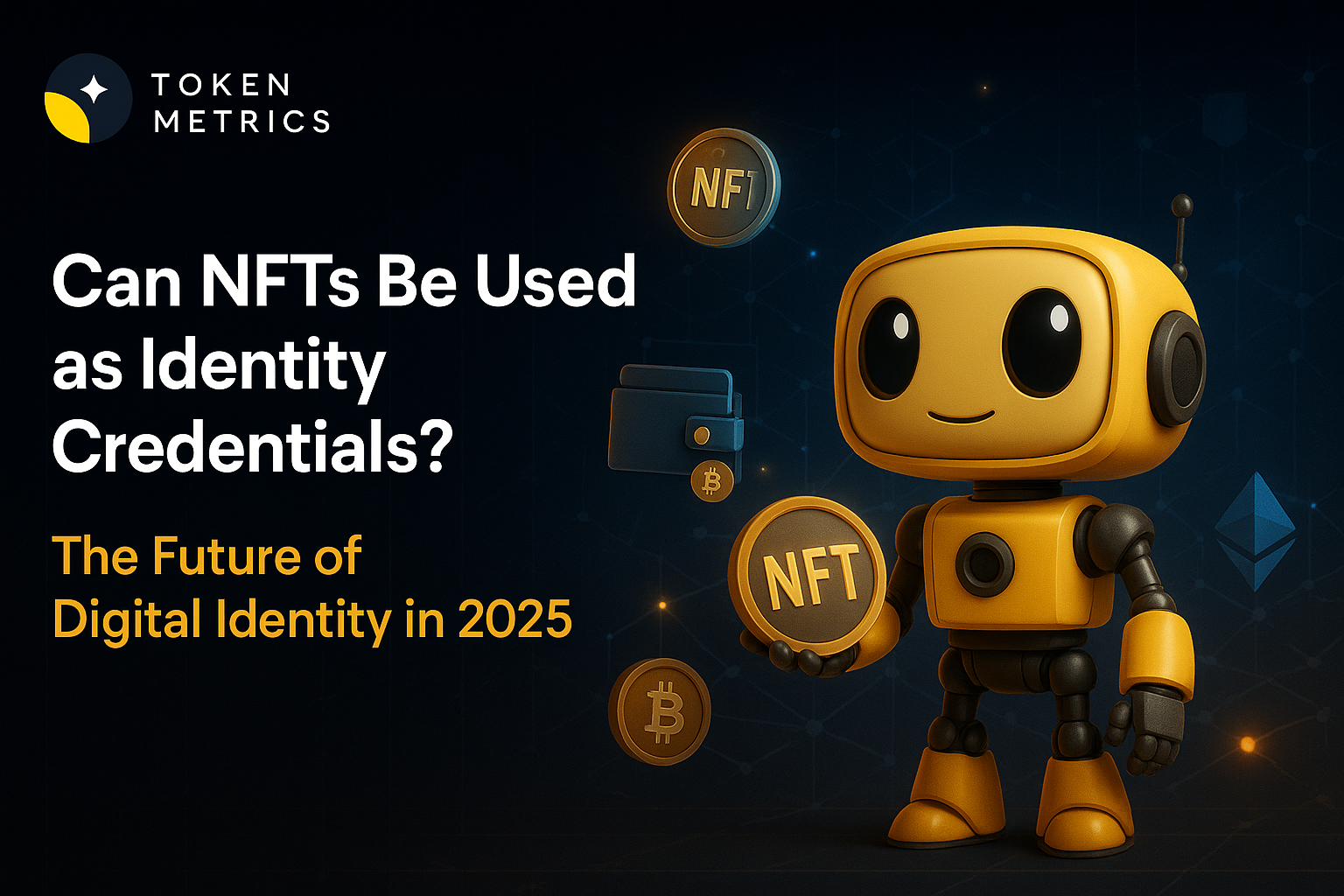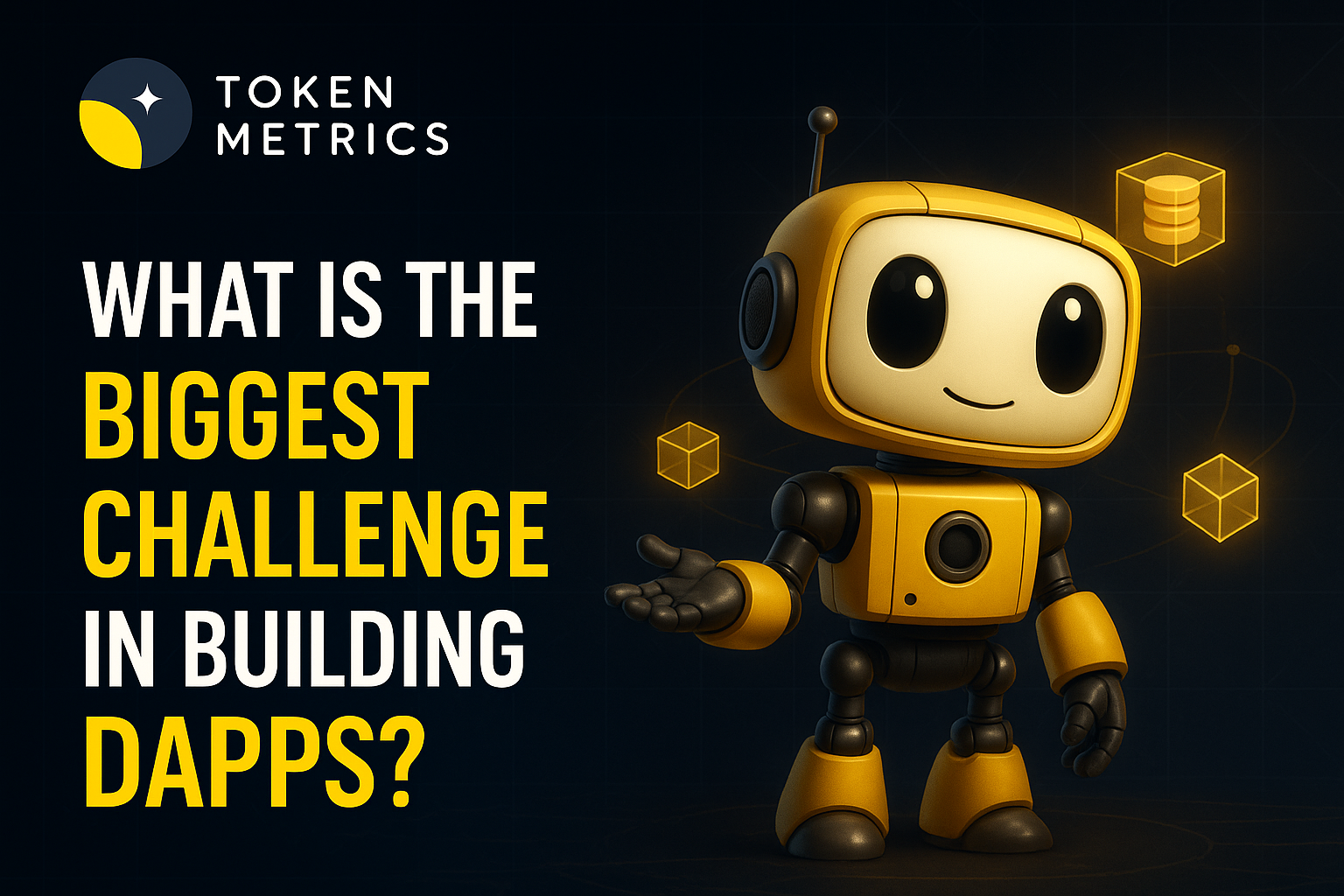Can NFTs Be Used as Identity Credentials? The Future of Digital Identity in 2025

In the rapidly evolving landscape of Web3 and blockchain technology, Non-Fungible Tokens (NFTs) have shifted far beyond their initial role as digital art collectibles. As we move through 2025, an important question arises: can NFTs be used as identity credentials? This article examines how NFTs are already being utilized as digital identity attestations and the potential implications for digital identity management, verification, and ownership in a decentralized digital environment.
Understanding NFT-Based Digital Identity
NFTs as digital identities represent a new paradigm for managing an individual’s credentials, history, and authorizations in a secure, verifiable digital format. Each NFT functions as a unique credential controlled solely by its owner but verifiable publicly by any party. This approach contrasts sharply with traditional identity systems, which are often centralized and managed by governments or corporations.
Built on blockchain technology, non-fungible tokens (NFTs) are recorded on a public ledger, providing a tamper-proof and transparent record. This ensures each NFT has a distinctive digital signature that cannot be duplicated or forged. Imagine carrying digital passports, educational diplomas, or professional certifications as NFTs stored securely in your digital wallet—credentials that are instantly verifiable by relevant entities worldwide, without intermediaries.
The Key Advantages of NFT Credentials
The move towards NFT-based identity systems offers numerous benefits that address common challenges in traditional identity verification and credentialing:
- User Sovereignty and Control: NFT credentials enable users to own and manage their personal data and digital identity without reliance on centralized entities. Unlike conventional systems where identity data is stored and controlled by third parties, NFT-based identity allows individuals to decide what information to share and with whom, reducing risks of identity theft and unauthorized access.
- Unprecedented Trust and Transparency: With each NFT having a unique digital signature stored on-chain, verification becomes straightforward and trustless. Anyone can independently verify the authenticity of a credential, which is crucial in sectors like education, healthcare, and finance.
- Portability and Interoperability: Digital identity NFTs are portable across various platforms and ecosystems. Users can carry their credentials across virtual worlds, decentralized finance (DeFi) platforms, social media, and more. This seamless interoperability simplifies digital interactions and access management.
- Tamper-Proof and Secure: Blockchain technology ensures once data is stored on-chain, it cannot be altered or forged. This enhances the security and credibility of identity credentials, reducing fraud and data breaches.
Real-World Applications Already in Motion
NFT identity credentials are actively deployed across multiple sectors in 2025, demonstrating their practical value:
- Decentralized Credentialing: Educational institutions issue NFT diplomas, micro-credentials, and professional licenses as verifiable digital certificates. Students and professionals can instantly prove their qualifications without contacting centralized registrars or paying verification fees.
- Access Control in Virtual Environments: In virtual worlds and gaming ecosystems, NFTs serve as digital passes granting access to exclusive content, virtual real estate, or members-only communities. These NFT-based access controls streamline entry management and create new digital ownership opportunities.
- Reputation Systems in DeFi and DAOs: Decentralized autonomous organizations (DAOs) and DeFi platforms utilize NFTs to represent governance rights, voting power, and reputation scores. This transparent system records members’ contributions and responsibilities, enabling trustless verification within decentralized networks.
- Event Tickets and Memberships: NFT digital tickets are transforming event management by offering secure, personalized access to concerts, conferences, and online sessions. Each NFT ticket acts as a verifiable digital credential, simplifying access and reducing fraud.
The Evolution: From Static to Smart Identity
One of the most exciting developments in 2025 is the emergence of AI-powered NFTs, or intelligent NFTs (iNFTs). These digital identity NFTs are dynamic, capable of evolving over time. Powered by artificial intelligence, iNFTs can act as intelligent agents that manage credentials, respond to verification requests, and interact with decentralized applications using natural language.
For example, an iNFT can provide context-aware disclosures—confirming someone is over 18 without revealing their full birth date, or verifying employment status without exposing detailed work history. This selective disclosure enhances privacy while maintaining the integrity of verifiable credentials, aligning closely with principles of decentralized and self-sovereign identity management.
Navigating the Crypto Landscape with Token Metrics
As NFT-based identity systems proliferate, understanding the broader crypto and NFT ecosystem becomes critical. Platforms like Token Metrics offer invaluable insights powered by AI and data analytics on numerous crypto and NFT projects, including those focused on digital identity.
Token Metrics evaluates tokens with Trader Grades for short-term potential and Investor Grades for long-term viability, helping users identify promising NFT identity projects. Its integrated platform facilitates quick research, analysis, and informed decision-making based on real-time market signals.
For individuals exploring digital identity NFTs, Token Metrics provides comprehensive analytics and timely alerts to differentiate genuine technological progress from hype. This makes it an essential tool in navigating the evolving digital economy and Web3 infrastructure.
Challenges and Considerations
Despite their promising potential, NFT-based identity systems face several hurdles:
- Privacy Concerns: Blockchain transparency is a strength but also raises issues about exposing sensitive personal data. Implementing cryptographic solutions and privacy-preserving protocols is vital for safeguarding user information.
- Regulatory and Legal Recognition: The legal standing of NFT credentials varies globally. Regulatory frameworks need to evolve to formally recognize and validate these digital identities for widespread adoption.
- User Experience and Accessibility: Blockchain interfaces can be complex; user-friendly wallets and apps are necessary for mainstream acceptance of NFT identity solutions.
- Security Risks: While NFTs themselves are tamper-proof, the security of digital wallets and private keys is critical. Loss or theft can lead to loss of access to digital identities.
The Road Ahead
By 2025, NFTs are being piloted as digital passports, professional licenses, and access passes that offer tamper-proof verification and ownership. The trajectory indicates NFTs have transitioned from simple digital art to powerful tools for establishing trust, ownership, and identity in digital spaces.
The convergence of blockchain, NFTs, and AI is unlocking new paradigms for digital identity management. Instead of fragmented identities stored in centralized databases, individuals will soon be able to own and control their credentials in a fully decentralized, secure manner.
This evolution is set to revolutionize how we manage digital interactions, with applications spanning education, virtual worlds, real estate, and beyond. It promises enhanced security, interoperability, and user sovereignty, marking significant progress in digital identity solutions.
Conclusion
So, can NFTs be used as identity credentials? Absolutely—and they are already serving as verifiable, portable, tamper-proof digital credentials. These innovations empower users with ownership and control over their digital identities.
Looking ahead to 2025, integrating NFT identity systems with AI-driven smart contracts and decentralized identifiers will likely make these credentials even more secure and privacy-focused. While there are challenges around privacy, regulation, and usability, the potential benefits—such as increased security, user sovereignty, and seamless verification—make NFT-based identity a highly promising application of blockchain technology.
For those interested in the future of digital identity, staying informed through platforms like Token Metrics is essential. As the digital economy expands, NFTs are poised to play a central role in how we establish and verify our identities in digital space.
The question is no longer whether NFTs can be used as identity credentials, but how quickly we can develop the infrastructure and ecosystems needed to realize this new digital identity paradigm for everyone.
Create Your Free Token Metrics Account

.png)




%201.svg)
%201.svg)


%201.svg)










.svg)




.png)